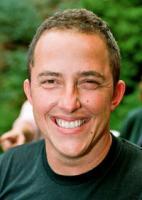Woelfle-Erskine, Cleo |USA

Cleo Woelfle-Erskine is a postdoctoral scholar in the Department of Environmental Sciences, Policy, and Management at UC Berkeley. He completed his M.S. and Ph.D. in the Energy and Resources Group at UC Berkeley and undergraduate studies in geosciences at the University of Montana. Drawing on interdisciplinary training in social science, Science and Technology Studies (STS) and hydro-ecology, his dissertation on salmon recovery projects and my new research on restoration collaborations with beavers explores social aspects of watershed governance through interviews and participant observation in stream surveys with citizen and agency scientists. A key question here and in dozens of other such systems is to how manage these systems for sustainable livelihoods and sustainable salmon stocks. Shifting concepts of agency and animacy—highlighted by queer, transgender, and feminist scholars of science and technology—signal an unfolding imaginary in which other species and natural processes are active dimensions of social life. He mobilizes approaches from seemingly disparate fields—Feminist STS, Queer and Transgender Theory, Environmental Politics, Hydro-Ecology, and Critical Animal Studies—that share a commitment to critically re-working human-nature boundaries. His research approach puts feminist STS theories of entanglement into practice in hydro-ecological research via ongoing work on aquifer recharge in Salmon Creek, beaver collaboration to increase late season streamflow in the Klamath basin, and proposed future work on indigenous fire management and streamflow.
Project at IAS-STS: Queer, trans-species STS as intervention in ecological science
Building on recent feminist Science and Technology Studies (STS) theory, my postdoctoral research investigates a queer and trans-species potential in ecological science. At IAS-STS, I will investigate how queer theory can expand the kinds of problems that ecologists study–and in particular the way they study multispecies communities. Drawing on sources in the ecological literature, ethnography at scientific meetings, and my interviews with ecologists, I trace resonances with queer theory, including political and subversive tendencies in ecologists’ practice and communication of science. I will be working on a book manuscript entitled (for now) Transfiguring anthropocene streams: Stochastic re-imaginings of human-beaver-salmon worlds. The book traces new water governance and salmon recovery efforts that frame ground and surface water as multi species commons and employ beavers as stream restoration collaborators.
This project expands on my dissertation research on salmon recovery in California (USA), where I found that both my ecological fieldwork and participatory ethnography with government and citizen scientists productively engaged queer and feminist Science and Technology studies. Environmental philosophers have looked to ecological science as a way to connect humans to the nonhuman world; this is a science that emphasizes interdependence, and rejects human exceptionalism. Shifting concepts of agency and animacy—highlighted by queer and feminist scholars of science and technology—signal an unfolding imaginary in which other species and natural processes are active dimensions of social life.
Selected Publications
Woelfle-Erskine, C. and J. Cole, 2015. Transfiguring the Anthropocene: Stochastic re-imaginings of human-beaver worlds. Transgender Studies Quarterly, Special Issue: Tranimalities.
Woelfle-Erskine, C. 2014. “Thinking with salmon about rain tanks: commons as intra-actions.” Local Environment, Special Issue: Rainwater practices and management in a variable climate. doi: 10.1080/13549839.2014.969212
Woelfle-Erskine, C. 2015. “Connecting rain to taps and drains to gardens: Emerging cultural waterscapes in California cities.” in Lassiter, A. ed., The Sustainable Water Reader: Lessons from California for the 21st Century, University of California.
Woelfle-Erskine, C. 2015. “Rain tanks, springs, and broken pipes as emerging water commons along Salmon Creek, CA, USA.” ACME: An International E-Journal for Critical Geographies, Special Issue: Researching household water practices.
Woelfle-Erskine, C., J.O. Cole, L. Allen, eds. Dam Nation: Dispatches from the Water Underground. New York: Soft Skull, 2007.
